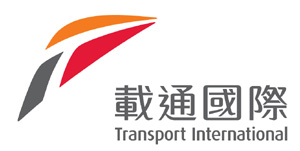At the 2012 Annual General Meeting of Transport International Holdings Limited (TIH) today (Thursday, 17 May 2012), the Group’s Chairman, Sir Sze-yuen Chung, reported the financial results for 2011. For the year ended 31 December 2011 the Group’s profit attributable to equity shareholders was HK$242.4 million, a decrease of 72.0% compared to HK$866.9 million for 2010. The decrease in profit was mainly attributed to the deterioration in the financial performance of The Kowloon Motor Bus Company (1933) Limited (“KMB”) in 2011, which was mainly owing to the drastic increase in international fuel oil prices. Another reason for the year-on-year decrease in profit was the one-off, non-recurrent capital gain of HK$489.1 million arising from the disposal of 50% of the Group’s interest in an industrial site at Kwun Tong, which was recognised in 2010.
The Board has proposed an ordinary final dividend of HK$0.45 per share. Together with the ordinary interim dividend of HK$0.15 per share paid on 17 October 2011, total dividends for the year will amount to HK$0.60 per share.
Sir Sze-yuen said, “The Group’s franchised public bus business operated by KMB and Long Win Bus Company (“LWB”) faced a very challenging operating environment in 2011. Escalating international fuel oil prices resulted in a substantial increase of HK$374.7 million in KMB’s fuel costs to HK$1,403.4 million in 2011, a 36.4% increase compared to 2010. This increase in fuel costs, coupled with increases in KMB’s other operating expenses, including staff costs and toll charges, far exceeded the increase in fare revenue resulting from the implementation of the 3.6%
fare increase which took effect on 15 May 2011. Furthermore, KMB recorded a year-on-year decline in patronage of 1.1% for 2011, mainly due to continuing passenger shift to rail. These adverse factors resulted in KMB reporting a significant decrease in profit in 2011. As for LWB, its total ridership in 2011 increased by 2.9% as compared with 2010. This growth, which was mainly attributed to the increased demand for transport generated by travellers from China Mainland and by construction workers involved in new developments at the airport. LWB’s fare increase of 3.2% also took effect on 15 May 2011. However, these positive factors were unable to counterbalance the upsurge in fuel prices and other operating expenses, resulting in LWB reporting a decrease in profit in 2011.”
The performance of the Group's non-franchised transport businesses, including Sun Bus Holdings Limited and its subsidiaries, was also adversely affected by the rise in fuel prices in 2011. The Division has, however, adjusted its coach hiring charges to meet increased operating costs. The Group’s joint venture transport companies in Beijing and Shenzhen continued to show stable performance in 2011.
“Continued high fuel oil prices, an expanding rail network and increases in wages and other operating expenses owing to inflationary pressure mean that the Group’s operating environment is set to become increasingly challenging in 2012. While further route rationalisation and efficiency enhancement measures are one response to these challenges, we will also explore other means with the HKSAR Government with a view to easing fare increase pressures. If the current trend of high fuel prices persists and other mitigation measures cannot effectively alleviate the cost escalation problem, we will have little choice under the existing mechanism but to apply for fare adjustments in order to restore our financial viability and maintain the existing service standards,” Sir Sze-yuen said.
The development of the industrial site at 98 How Ming Street, East Kowloon, in which the Group has a 50% stake, is ongoing. At the end of 2011, the sale of residential flats and car parking spaces at Manhattan Hill is almost complete. The entire Manhattan Mid-town shopping mall with a total area of 50,000 square feet and the shops in the headquarters building at 9 Po Lun Street, Lai Chi Kok, are leased out and will continue to provide steady revenue for the Group.
Sir Sze-yuen added, “In spite of the significant challenges to our franchised public bus business posed by high fuel prices and the expansion of the rail network, the Group remains in good shape in respect of its various businesses and is well placed to take advantage of viable opportunities that lie ahead. In the future, we shall continue to leverage our core competence to overcome the challenges and deliver significant value in the businesses that we operate.
This will be my last speech as Chairman of TIH after nearly 13 years of service. I would like to wish my successor in the post, Dr Norman Leung Nai Pang, all the very best in the years ahead, and to thank my fellow Board members, our dedicated management team and staff at every level for their continued contributions to the success of the Group.”

TRANSPORT INTERNATIONAL HOLDINGS LIMITED 2012 ANNUAL GENERAL MEETING
(17 May 2012)

